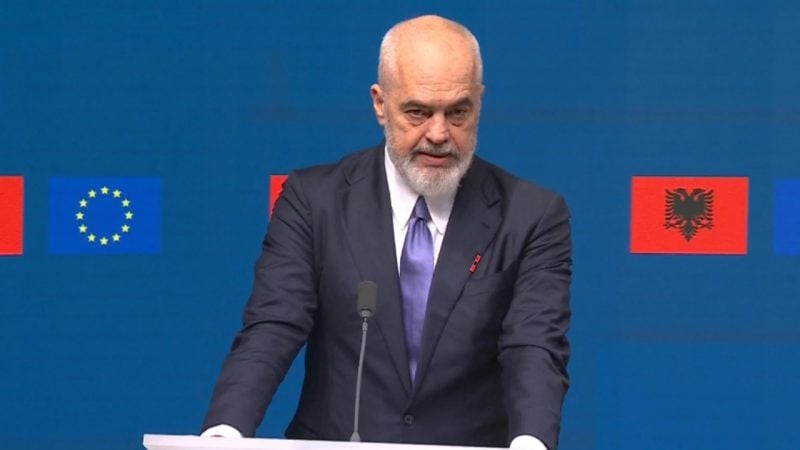 The Washington Agreement Must Be Reactivated!
The Washington Agreement Must Be Reactivated! 
US Department of State published the 2010 human rights report for 194 countries of the world. The report gives a general view of each country during 2010.
The 25 pages document referred to Albania mentioning the Parliamentary Elections 2009, which, according to OSCE, were better than the previous elections, but didn’t achieve the standards.
Although the Socialist Party voted for the election certification as legal and conclusive, this political subject boycotted parliament after September, calling for an investigation into alleged electoral fraud. The boycott continued till the end of the year.
As for the financing of political parties, the document says that this case remains obscure. Corruption and impunity goes on. The report says that government corruption remained a serious and unresolved problem.
Broad immunity favors to judges, deputies and high officials forbid criminal investigations on high levels. This phenomenon has spread its roots everywhere. The document mentions the former Minister of Defense case, Fatmir Mediu, after the ammunition explosion in Gërdec, on March 2008.
The General Prosecution made no request to remove his immunity. In 2009, the High Court decided that Fatmir Mediu has gained immunity by the 2009 reelection at the Parliament.
Discrimination against women, children and homosexual persons were problems. Trafficking in persons also remained a problem. As for the Roma community, the report mentions the National Action Plan 2010-2015, with a budget of 2.5 billion leks (14 million Euros).
The ethnic Greek minority pursues grievances regarding electoral zones, Greek-language education, property rights, and government documents. The report says that minority leaders cited the government’s unwillingness to recognize ethnic Greek towns outside Communist-era “minority zones”; to utilize Greek in official documents and on public signs in ethnic Greek areas; to ascertain the size of the ethnic Greek population; or to include a higher number of ethnic Greeks in public administration.
The report also mentions Vasil Bollano, the ethnic Greek mayor of Himara who was found guilty of abuse of office but the case was under appeal by June 2009. Bollano was charged with destruction of government property after he ordered the removal of several new road signs in the Himara district because they were written in Albanian and English but not Greek.
As for the role of the media, the report writes that the government and the businesses influence and exert pressure against the media. Critics against the government may be open, private and of no limit, the report says, but there are some exceptions. Some media have been under strong pressure for the taxes, because of their political convictions.
Two daily journals, “Tema” and “Korrieri” were closed this spring, after being fined with 20 and 22 million leks. The newspapers underlined that the government punished them for the lacking of documentations that showed that they had destroyed unsold copies.
“Tema” appealed the penalty and the case is under process. On October, after being reorganized, Tema started publishing again.
Again on the media, the report says that media were active and largely unrestrained, but there have been direct and indirect pressures against them, including threatens against journalists.
The document mentions Top-Channel’s role through the investigative program “Fiks Fare” that caused the dismissal and the opening of a criminal law suit against corrupted public officials. The report also focuses at the case of former Minister of Culture, Ylli Pango, accused of sexual abuse. On June 18th, Court of Tirana heard the law suit that Pango opened against Top Channel, and decided to punish Top Channel with 500,000 dollars for moral damages against the Former Minister and for causing him angst and desperation. Top Channel appealed the court’s decision and the case still remains in abeyance.
The report also mentions the case of Top-Channel’s premises lease contract; the postponement of the Council of Ministers decision on 2006 to break the 20 year old lease with this private television, critical to the government, and the government’s order to vacate the state-owned building.
The government agreed to allow Top Channel to move to another state-owned office building. Despite this order, Top Channel said that the owner of the new building was not allowing them to transfer and keep doing their job.
The report also says that the Albanian Constitutions provide an independent judicial system, but political pressure, threats, open corruptions and limited instruments have impeded their independent function.
The report says that the Police beats and mistreats their suspects during questioning and imprisonment.
Top Channel







